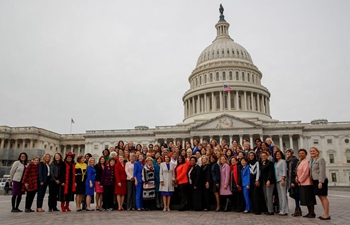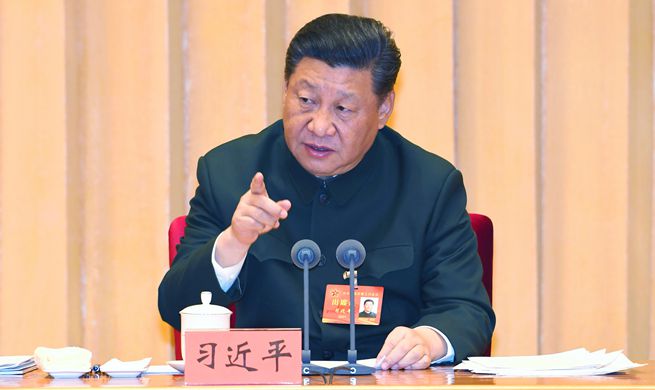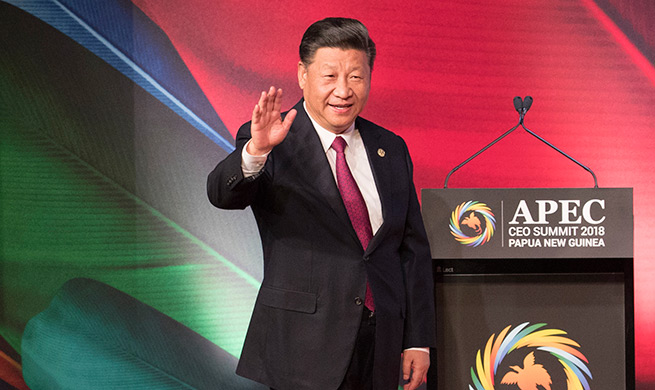NAIROBI, Jan. 5 (Xinhua) -- After years of insisting that school fees payments must be done only through bankers' cheques or direct account deposits, Kenyan learning institutions have finally embraced mobile money.
The institutions mainly primary and secondary schools and colleges have added mobile money payments to the means through which parents can pay fees.
The schools, both private and public institutions, have acquired mobile money paybill numbers from service providers like leading telecom Safaricom, which they then hand to parents for payments to be made.
This week, as schools reopened for the first session of 2019, hundreds of parents in the East African nation had an easy time paying fees for their children.
"The private school my two children attend introduced mobile money payments last term after parents suggested. I used the service this time for the second time," Ali Said, a parent who lives in Komarock on the east of Nairobi, said on Saturday.
He paid 70,000 Kenyan shillings (686 U.S. dollars) through the system and printed a statement that he took to the school.
"Initially, I would have visited a bank, withdrew the money over the counter, then deposit in the school account or buy a bankers check," Merceline Aketch, a parent, recounted the process thousands of Kenyan parents went through.
The process would sometimes take the entire day as banks would be crowded with parents and pupils during the school opening days.
A spot check in several banks in the capital Nairobi this week indicated that congestion initially associated with school opening was missing, thanks to the new modes of fee payment.
Bernard Kivati, an accountant at a private school in Nairobi, said they embraced mobile payments to conform with modern day payment realities in Kenya.
"These days, every Kenyan transacts business on mobile money which moves billions of dollars every year. So, locking out mobile payments did not make sense," he said.
The mobile payments, according to him, have enhanced fee collection as parents don't have to wait to visit the bank or schools to pay fees while others can pay in installments conveniently.
On the other hand, others can borrow cash from digital lenders and wire the same to schools.
"It is an efficient system because you cannot expect someone who has borrowed digitally to withdraw the money and again take it to the bank," he said.
The learning institutions are also accepting payments through banking agents. "You deposit the money and bring the slip to us. Then we will compile all the payments and come up with a list of students who have paid fees," said Kivati.
Bernard Mwaso, a consultant with Edell IT Solution, noted that schools had no choice but to embrace mobile payments.
"They had resisted them for years, sticking to the traditional cheques but this was no longer workable because people have shifted to mobile payment," he said.
According to Mwaso, public schools are among the last government institutions to accept mobile payments.
"Several government agencies including immigration department and transport authority, churches and hospitals now only accept mobile payments. Schools had no choice," he said.
However, as schools embrace mobile money, banks are among the biggest losers as they charge between 1 dollar and 5 dollars for bankers cheques.
Cash deposits into school accounts are, however, free, but most institutions especially public ones have been insisting on the cheques.
Mobile money transactions hit 20 billion U.S. dollars for the first time in third quarter of 2018 as penetration clocked the 100 percent mark, according to the Communication Authority of Kenya latest data, an indication of how ubiquitous the services is in the country.













